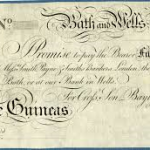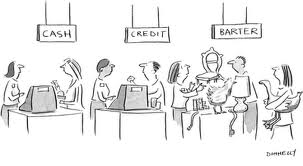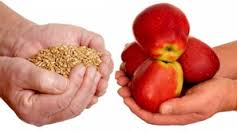According to a BBC News article this week shoppers are using cash to purchase items much less often than ever before. A recent survey by the British Retail Consortium (BRC) has found that there has been an increase on online sales and contactless cards, so much so in fact that there has been a 14% fall in cash use over the past five years. Debit card use is up by 11%.
In 2013 cash accounted for 53% of transactions while debit cards accounted for 32%, but because people tend to pay using their cards for larger priced items, the actual VALUE of card sales in 2013 was 50% of total sales. Meanwhile the average value per transaction is falling as people start to carry less cash around with them and new ways to pay and shop grow popular. Nowadays we have contactless cards, handy express stores and self-service tills to replace cash in larger stores and retailers at any rate.Cost of card sales
Unfortunately those of us who have SME businesses struggle to keep up with this trend for one simple reason: the costs we are charged by external handlers for the card use by our customers. According to the BRC survey, banks are still levying “unjustifiably” high charges for using cards. In fact the BRC claim that the average costs to a retailer of processing a credit or charge card payment had increased by 18%, to 41 pence, in the past five years while debit card payments, on average, now cost 8.8p to process, which has increased by 4% over the same period. Where does the money go we wonder?
Meanwhile, the UK Cards Association claim that the charges are still good value. They probably would say this of course: The UK Cards Association is the trade association for the card payments industry in the UK and their membership includes all the major credit, debit and charge card issuers, and card payment acquirers. In other words – the people who benefit the most from the charges.To be fair, the UK Cards Association also leads on industry standards and best practice; and attempts to safeguard the integrity of card payments by tackling card fraud. So they do some good work. But how much does it all cost and where do the super profits go?
The UK Cards Association has stated that retailers needed to make a fair contribution to the costs of processing the transactions because if they didn’t it would fall to the consumer and as we in the business all know, consumer confidence is still low on the High Street and we don’t want to charge more than we have to, so we businesses often take the brunt of the payments.
It seems to be a winning situation for consumers but it does mean that businesses can sometimes struggle to meet the costs charged them by their banks and card payment acquirers such as Streamline and even Paypal.
Back to the days of bartering
We’ve certainly come a long way since we used to pay for our goods with shells, haven’t we? Way back in the dusky mists of time when there was no money, mankind simply used to trade things. You give me a chicken and I’ll give you a sack of potatoes – that kind of thing. Shells and beads were actually exchanged for other commodities – handy if you lived on a beach I should imagine!
The problem with bartering or exchange commodities is that you have to have something that someone else wants. So you wouldn’t be able to trade seashells in Skegness or coal in Newcastle very successfully. There might also be a mismatch in when your products were available – for example if you sell apples you have to wait for them to grow on the tress but in the meantime the farmer will already have harvested his wheat and produced flour so he won’t wait for you. It’s all very complicated and that’s why ‘money’ came about.Where money originated from
Money can take the form of things that don’t spoil and don’t lose value. We still recognise the truth in this – gold, wine and other precious metals can still be used in trade.
The earliest coins that have been recognised belong to 700-500 BC and are from India and China and it gradually spread eastwards to the Mediterranean. Metal based coins are particularly useful because to a certain extent they carry their value within themselves. Their weight originally meant something but of course nowadays it is their symbolic value that is important, not how much they weigh.
The whole monetary system was relatively unstable around the world until national Banks guaranteed to change money into gold at a promised rate. That’s why it says the Bank of England guarantees to pay the holder of this note X amount of money on a bank note. Every coin and note is a proportion of gold. Really not very much these days but you get the general idea.
Bank notes

Our banks used to issue their own bank notes and for centuries there was no uniformity. Very collectable now!
Plastic Banknotes
The next stage of our financial evolution will be when plastic banknotes arrive in 2016. Plastic banknotes will last two and a half times longer than paper notes and can survive a trip through the washing machine. The first plastic note will be the £5 which will feature Sir Winston Churchill and the £10 note carrying the image of Jane Austen will come into use in 2017.
The thing is if we increasingly use cards to pay for our money why are we worried about cash? And given the proportion of the charges we small and medium businesses pay for consumer card use what do we actually gain in return?What do you think?
Let us know your thoughts. Do you ask your customers for cash only or do you use cards and cash? Do you still accept cheques? What do you think of the charges levied against your business? Come and find us on Facebook or leave us a comment below.
 Wholesale
Wholesale 




Comments are closed.